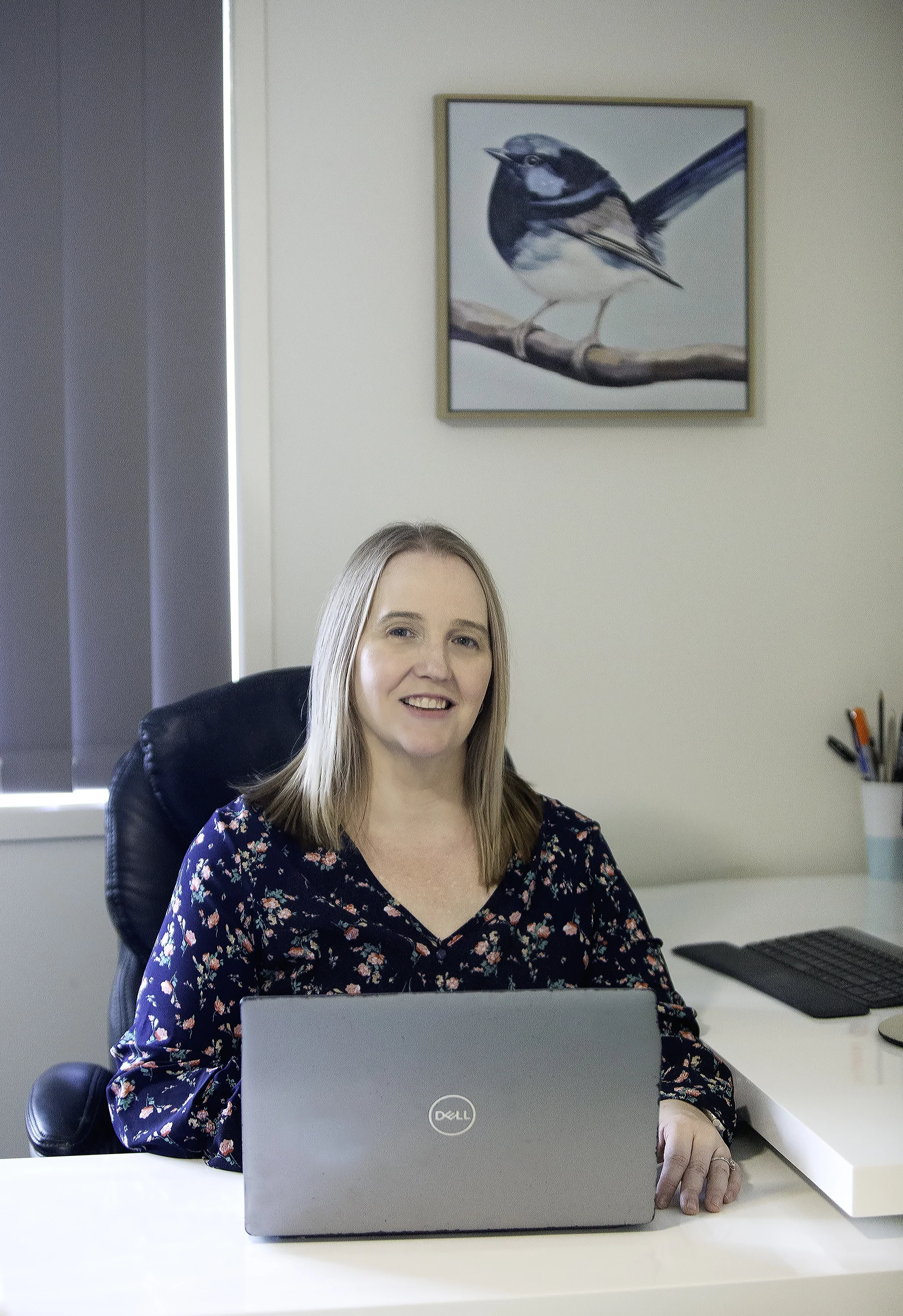
Online Therapy with a psychologist for recovering from Sexual Abuse in Religious Contexts
“You didn’t deserve what happened. Even if no one else believed you. Even if you’re only just starting to believe yourself.”
Sexual abuse within a faith or ministry setting is a profound betrayal of trust. When the person who causes harm also holds spiritual authority, the effects can reach deeply into every part of life — emotional, psychological, relational, and spiritual. Survivors often struggle with shame, confusion, and questions about faith, safety, and self-worth. Therapy provides a safe, confidential space to begin understanding what happened and its impact. Healing involves reclaiming your voice, rebuilding safety, and reconnecting with your sense of dignity and meaning.
A Safe and Confidential Space to Begin the Journey Toward Healing from Clergy Sexual AbuseSexual abuse that occurs in a religious setting—whether in childhood, adolescence, or adulthood—can be particularly disorienting and devastating. The betrayal of trust, spiritual manipulation, and misuse of authority often leave lasting wounds that go far beyond the immediate harm. Many survivors carry profound questions about identity, safety, faith, and whether healing is even possible.
This space offers compassionate, confidential care for those seeking support after experiencing sexual abuse in a religious or spiritually abusive context. You don’t need to have it all figured out. You don’t have to tell your whole story at once. This can be a safe place to begin.
Survivors of childhood sexual abuse in a religious context (e.g., by clergy, youth leaders, teachers, or within church communities)
Adults who have experienced clergy sexual misconduct or adult clergy sexual exploitation, even when framed as “consensual”
People navigating complex grief, shame, anger, or spiritual distress after abuse
Those who were silenced, disbelieved, or punished for disclosing abuse
People struggling to reconcile their faith with what happened to them
Survivors unsure whether what they experienced "counts" as abuse
Whether your experience was recent or decades ago, you deserve support.
Sexual abuse in religious contexts often involves:
Power imbalances, where victims may feel unable to say no or seek help
Spiritual grooming, using faith language to manipulate or control
Betrayal trauma, when a trusted leader or community causes harm
Silencing, where disclosure is discouraged or minimised to protect reputations
Internal conflict, especially when the abuser is respected or still in leadership.
Understanding the Impacts of Clergy Sexual Abuse in Faith ContextHi, I’m Kylie Walls, a registered psychologist and the founder of Refuge Psychology.
My practice is shaped by professional experience, research, and a long-standing commitment to supporting people navigating complex emotional, relational, and faith-related experiences. I have worked with individuals from a wide range of backgrounds and faith traditions, and I have also held volunteer and professional roles within church and ministry contexts. These experiences have deepened my understanding of the unique dynamics that can arise when wellbeing, identity, and faith intersect — and the importance of care that is both sensitive and clinically grounded.
I have published research on control, attachment, and emotional regulation, and have previously worked as a Domestic and Family Violence Advisor within a faith-based organisation. I began my career as a teacher and later spent time working in photography, but my ongoing interest in people — their stories, relationships, and inner worlds — led me into psychological practice. I bring both professional and lived experience to my work in a way that is clinically grounded, respectful, and client-led.
ABOUT KYLIE
My Primary Therapy Modalities:
Schema Therapy - Individual and Couples (Primary Modality)
Schema Therapy is my primary modality, and is an evidence-based psychological approach that supports the processing of trauma and helps people understand and change long-standing patterns of thinking, feeling, and relating that often develop in response to unmet emotional needs or adverse early experiences. It is particularly helpful for individuals who notice repeated relational patterns, entrenched coping responses, or ongoing difficulties with self-worth, emotions, or boundaries.
Schema Therapy uses a range of techniques, including cognitive strategies to identify and challenge unhelpful beliefs, experiential techniques such as imagery and chair work to process emotional and relational experiences, and behavioural strategies to support new, healthier patterns of coping. The therapeutic relationship itself is also an important part of the work, providing a corrective emotional experience that supports healing, emotional regulation, and lasting relational change.
Cognitive Behavioural Therapy & Exposure & Response Prevention (ERP)
Cognitive Behavioural Therapy (CBT) is an evidence-based approach that focuses on identifying and changing unhelpful patterns of thinking and behaviour that contribute to emotional distress. It supports people to develop practical skills for managing symptoms, improving coping, and responding to challenges in more balanced and adaptive ways.
Exposure and Response Prevention (ERP) is a specialised, evidence-based form of therapy used primarily to treat obsessive–compulsive disorder (OCD) and related anxiety conditions. It involves gradually and safely facing feared thoughts, situations, or sensations while learning to resist compulsive or avoidance behaviours, helping reduce anxiety and build confidence over time.
Eye Movement Desensitisation and Reprocessing (EMDR)
Eye Movement Desensitisation and Reprocessing (EMDR) is an evidence-based therapy designed to help people process and resolve traumatic or distressing memories that continue to impact their emotional wellbeing. By using bilateral stimulation while recalling difficult experiences, EMDR supports the brain’s natural healing processes, reducing the intensity of trauma-related distress and helping memories become less overwhelming over time.
Gottman Therapy & Emotionally Foused Therapy (Couples & Relationships)
Emotionally Focused Therapy (EFT) is an evidence-based, attachment-informed approach that helps individuals and couples understand, experience, and express emotions in healthier ways. It focuses on identifying emotional patterns and strengthening secure connection, supporting deeper emotional safety, responsiveness, and lasting relational change.
The Gottman Method Couples Therapy is an evidence-based approach to relationship therapy grounded in decades of research on what helps relationships thrive or break down. It focuses on strengthening friendship, improving communication and conflict management, increasing emotional connection, and reducing patterns such as criticism, defensiveness, contempt, and withdrawal through practical, structured interventions.
Areas of Interest
I offer support to adults who may be:
Managing general mental health concerns such as anxiety, depression, stress, grief, or life transitions — whether or not these are connected to faith or ministry.
Navigating confusing, painful, or high-pressure experiences in church or ministry environments, including those recovering from spiritual abuse, coercion, or high-control faith settings, including cults.
Pastors, ministry leaders, and caregivers experiencing stress, burnout, role strain, or relational challenges within ministry or leadership roles.
Experiencing domestic and family violence, coercive control, or destructive relationship patterns — whether in intimate partnerships, family, community, or faith-based contexts.
Experiencing scrupulosity / Religious OCD or distress related to rigid or fear-based beliefs.
Facing workplace challenges, including bullying, power imbalances, role strain, or organisational conflict, and the emotional toll these experiences can create.
Couples seeking support around communication, connection, conflict patterns, recovery after relational harm, infidelity, or navigating values and expectations within relationships.
Inclusive and Client-Led Care
While I have a particular interest in supporting people from faith backgrounds, I welcome clients from all backgrounds. My focus is on providing compassionate, trauma-informed, and ethical psychological care that honours each person’s values, experiences, and goals for wellbeing.
This is a collaborative space, shaped by your needs and values.
My Approach is…
evidence basedSupport is grounded in well-established psychological research and clinical approaches shown to be effective, while remaining responsive to your needs and goals.
compassionateCare is offered with warmth, empathy, and respect, creating a safe space where you can be heard with understanding.
Trauma-informedTherapy recognises the impact of past and present trauma, prioritising your safety, choice, and sense of control throughout the process. Trauma-informed approaches are used.
respectful of your unique situation, beliefs and storySupport is tailored to your lived experience, values, and worldview, with sensitivity to cultural, spiritual, and personal contexts.
Have questions about support for sexual abuse experienced in religious contexts?
Q&A-
Yes. If you have a current Mental Health Treatment Plan from your GP, you may be eligible to receive a Medicare rebate for up to 10 individual psychology sessions per calendar year. These rebates help reduce the out-of-pocket cost for each session. You’ll need to provide a copy of your referral letter and MHTP prior to your first appointment.
-
Although there are some presentations that I cannot safely treat online, I work with individuals experiencing a range of mental health concerns, from mild anxiety or low mood through to more complex challenges such as PTSD, dissociation, religious trauma, and OCD. If your presentation is more complex, I will work collaboratively with your broader care team (e.g., psychiatrist, GP, or support worker) where appropriate, to ensure you receive safe and effective care.
Online therapy is offered as long as it is deemed clinically appropriate and safe for your specific needs. -
Yes. Research shows that online therapy can be just as effective as face-to-face sessions for a wide range of concerns, including depression, anxiety, trauma, and relationship issues. It also offers convenience, privacy, and access to support regardless of location. All sessions are conducted via a secure telehealth platform.
-
Clergy sexual abuse is particularly painful because it breaks trust at the deepest levels — emotional, relational, spiritual, and often communal. When harm comes from someone in a position of moral or spiritual authority, the impact is not just personal misconduct; it is a violation of power, trust, and sacred responsibility. The very person who was meant to offer care, guidance, and safety instead used that trust to cause harm.
It is understandable if your mind and body are still trying to make sense of what happened. Healing begins by recognising that responsibility for the harm lies with the person who held more power, not with the one who trusted them.
-
No. This reaction is common and does not mean you invited, wanted, or caused the harm. Clergy abuse often involves grooming — a process where emotional closeness, spiritual intimacy, or pastoral support is slowly shaped into something exploitative. The brain may hold both good and painful memories from the relationship, which can create confusion.Feeling connected does not equal consent.
Being seen or cared for does not mean you were responsible.
Power imbalance makes true consent impossible.Your trust was not the problem. Their misuse of power was.
-
Survivors often internalise guilt because:
The person who harmed them may have framed the relationship as mutual or “special.”
Religious environments sometimes emphasise self-blame, confession, silence, or submission.
Trauma can create a felt sense of responsibility even when you know you were not at fault.
Understanding guilt in this context is part of healing.
We work gently to separate what belongs to you from what does not, and to restore compassion for yourself. -
It is deeply disorienting when the person who harmed you is someone you trusted spiritually, emotionally, or relationally. Clergy sexual abuse almost always involves confusion — not because you misunderstood the situation, but because the harm was carried out in a context of trust, spiritual authority, and emotional influence. When your body, your faith, and your relationships were all intertwined with this person, the impact becomes layered and complex.
Then, when you try to make sense of what happened or speak about it, it can feel like the world shifts under your feet again. People may say things like:
“Maybe it was just a misunderstanding.”
“They would never do something like that.”
“Are you sure it wasn’t mutual?”
“You’re going to ruin their ministry.”
These responses are not about your credibility — they are about their discomfort.
Often, communities protect the image of the leader or institution because acknowledging the abuse would mean confronting something deeply threatening to their identity, belief system, or sense of safety. Your truth may challenge structures that people are emotionally invested in. So instead of responding with care, they respond with denial, minimisation, or silence.
This is called secondary wounding — the harm that happens after the harm.
And it can be as painful — or more painful — than the abuse itself.
Your confusion makes sense. Your pain makes sense. Your story is coherent — even if others are refusing to look at it.
And here is the truth:
You are allowed to name what happened.
You are allowed to feel what you feel.
You are allowed to seek support even if others don’t understand.
You are not being disloyal or divisive by telling the truth of your own experience.
Your story deserves to be held with care. Your pain deserves to be understood. Your voice deserves to be heard. You do not have to navigate this alone.
-
Yes. When harm occurs in a spiritual context, the nervous system may associate spiritual practices with threat or shame.
This does not mean your faith is gone — it means your body is trying to protect you.Healing may involve gently rebuilding spiritual safety over time.
You do not need to abandon your faith to heal.
Depending on your goals and desires, therapy can help you:Reconnect with your faith in ways that feel grounding, not triggering
Discern where and how safety is possible
Honour your spiritual identity while protecting your emotional wellbeing
-
Consent is not possible when one person holds spiritual authority, emotional authority, or pastoral influence over another.
-
Yes. It is extremely common for survivors of clergy sexual abuse or exploitation to only fully recognise the harm years or even decades later. This delay is not a failure on your part—it is a protective response that allowed you to survive something overwhelming at the time.
When abuse occurs in a church or ministry context, it is often wrapped up in:
Trust
Spiritual connection
Pastoral guidance
Emotional intimacy
A sense of belonging or calling
Because of this, your mind and body may not have been able to process what happened at the time. Instead, they did what they needed to do to keep going, they protected you. They kept the unbearable parts out of full awareness until there was enough distance, safety, support, or maturity to begin making sense of it.
This is why so many survivors describe moments like:
“I didn’t have the words back then.”
“I thought I was the only one.”
“I didn’t understand it was abuse until later.”
“I’ve only just realised the impact this has had on my life.”
This is not denial.
This is trauma wisdom.Your nervous system reveals truth slowly, at a pace that protects you.
Why does it feel like it’s affecting me even now?
Because trauma is not stored as a story—it is stored in the body, in the nervous system, and in your sense of self and safety.
Even if your mind tried to move on, your body may still be carrying:Shame
Hypervigilance
Avoidance
Numbness
Confusion
Startle responses
Difficulty with trust
Patterns of self-doubt or self-blame
Challenges in intimacy or vulnerability
Spiritual disconnection or grief
This does not mean you are broken. It means the harm was real, even if unspoken.
-
Yes. Abuse does not require sexual touch.
When a leader cultivates emotional dependency, secrecy, pastoral intimacy, or spiritual authority to create emotional dependency, or for personal or sexualised connection, it is exploitation.
Clergy sexual abuse often does not begin with overt sexual behaviour. In many cases, the harm begins with subtle shifts in emotional, relational, or spiritual boundaries that feel caring, special, or deeply meaningful at first. These shifts can be slow, almost gradual enough to feel natural, which is part of what makes them confusing and hard to identify in the moment. This is referred to as grooming.
Boundary blurring may look like:
Excessive emotional closeness — where the leader begins sharing personal struggles, vulnerabilities, or marital issues that create a sense of intimacy or mutuality. They may say "just keep coming back and talking to me about it", or "you can talk to me about anything". They may be extra attuned to your feelings and open to listening to you than you are used to.
Creating situations where excessive time is spent together.
Private communication — late-night messages, personal disclosures, or ongoing contact outside pastoral or ministry contexts.
Preferential attention or “special treatment” — being singled out as someone the leader “connects with more deeply” or “feels spiritually led to invest in.” An growing awareness that you are getting more attention than most others people in the congregation.
Spiritual language used to frame closeness — such as “God brought us together in this work,” “Our connection is sacred,” or “I have never met anyone who understands my ministry like you do.”
Increasing secrecy or confidentiality — being told not to share certain conversations or interactions because “others wouldn’t understand.” Being invited to "just keep coming and talking to me about it".
Offering to meet you at places other than where they typically meet people, such as at your home when you are alone, or somewhere away from the church.
Touch that begins as “innocent” — a hand on the back, extra-long hugs, touch during prayer, or physical closeness that feels emotionally charged. You may notice that this is increasing over time.
They may share things about themselves that feel personal, and create a sense that a trusting relationship is developing.
None of these moments, on their own, necessarily constitute “abuse.”
They often feel like being trusted, chosen, valued, or seen. For a while, they may fill a void, and lead to you feeling truly cared for.
That is why survivors often describe the early stages of the relationship with warmth, gratitude, or genuine connection. These feelings are not the problem — they are the very emotions the leader then misused.
So why can boundary blurring feel distressing later, even if explicit sexual contact did not occur because one or both of us withdrew?
Because, over time, these blurred boundaries can:
Create emotional dependency, which leads to guilt and confusion.
Lead to a feeling that they participated in an "emotional affair".
Confuse spiritual intimacy with relational or romantic attachment. Which can impact on spiritual formation moving forwards.
Lead to a felt sense that “I owed them something”, which may have led to being exploited in other ways (e.g., serving beyond your capacity).
Make it difficult to say no, step back, or see the situation clearly
Shape the belief that “I must have wanted this” or “I participated”, creating more sense of guilt.
Leave someone wondering if they "just imagined it", and confused becuase they experienced exploitation without the ability to name it clearly.
Some notice the same leader acting inappropraitely towards others, and their experience means that it is more difficult for them to remain silent. They may speak up and feel unheard, or they may stay silent and feel complicit in others abuse.
Ultimately, when a pastor engages in grooming behaviours, even if it does not involve sexual contact, it can lead to:
Grief
Shock
Anger
Shame
Confusion
Loss of trust in oneself
Disruption of spiritual identity or belonging
The distress comes from realising that your trust, openness, and care were used in a way that never should have happened.
To take the next step, book an confidential online session with psychologist Kylie Walls and access compassionate, trauma-informed support wherever you are in Australia.
View the Lastes on the Refuge Psychology Blog
let's get started















